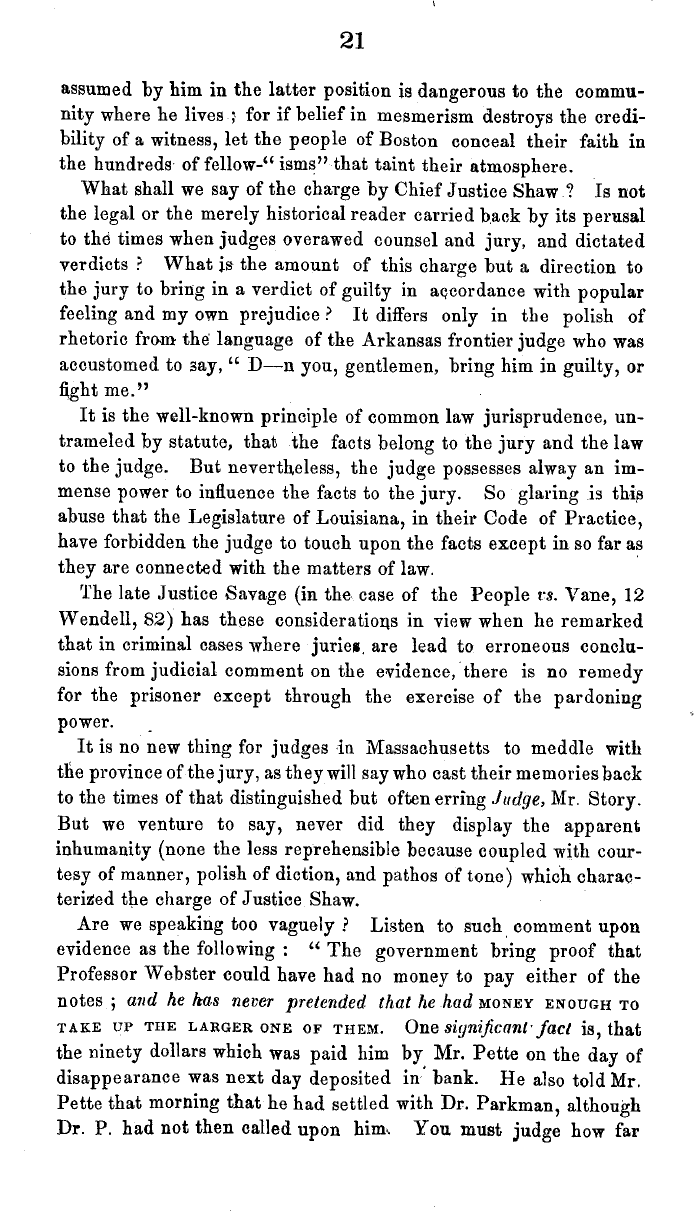|
21
assumed by him in the latter position is dangerous to the commu-
nity where he lives ; for if belief in mesmerism destroys the credi-
bility of a witness, let the people of Boston conceal their faith in
the hundreds of fellow-" isms" that taint their atmosphere.
What shall we say of the charge by Chief Justice Shaw ? Is not
the legal or the merely historical reader carried back by its perusal
to the times when judges overawed counsel and jury, and dictated
verdicts ? What is the amount of this charge but a direction to
the jury to bring in a verdict of guilty in accordance with popular
feeling and my own prejudice ? It differs only in the polish of
rhetoric fram the language of the Arkansas frontier judge who was
accustomed to say, " D-n you, gentlemen, bring him in guilty, or
$ght me."
It is the well-known principle of common law jurisprudence, un-
trameled by statute, that the facts belong to the jury and the law
to the judge. But nevertheless, the judge possesses alway an im-
mense power to influence the facts to the jury. So glaring is this
abuse that the Legislature of Louisiana, in their Code of Practice,
have forbidden the judge to touch upon the facts except in so far as
they are connected with the matters of law.
The late Justice Savage (in the case of the People rs. Vane, 12
Wendell, 82) has these consideratioils in view when he remarked
that in criminal cases where juries, are lead to erroneous conclu-
sions from judicial comment on the evidence, there is no remedy
for the prisoner except through the exercise of the pardoning
power.
It is no new thing for judges in Massachusetts to meddle with
the province of the jury, as they will say who cast their memories back
to the times of that distinguished but often erring Judge, Mr. Story.
But we venture to say, never did they display the apparent
inhumanity (none the less reprehensible because coupled with cour-
tesy of manner, polish of diction, and pathos of tone) which charac-
terized the charge of Justice Shaw.
Are we speaking too vaguely ? Listen to such comment upon
evidence as the following : " The government bring proof that
Professor Webster could have had no money to pay either of the
notes ; and he has never pretended that he had MONEY ENOUGH TO
TAKE UP THE LARGER ONE OF THEM. One significant' fact is, that
the ninety dollars which was paid him by Mr. Pette on the day of
disappearance was neat day deposited in-bank. He also told Mr.
Pette that morning that he had settled with Dr. Parkman, although
Dr. P. had not then called upon him.. You must judge how far
|

